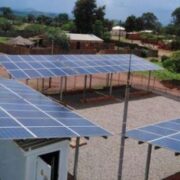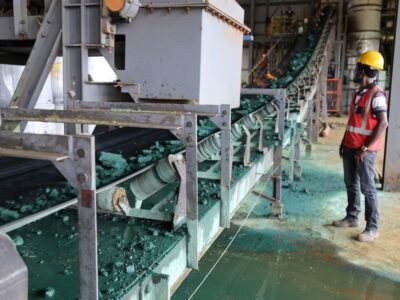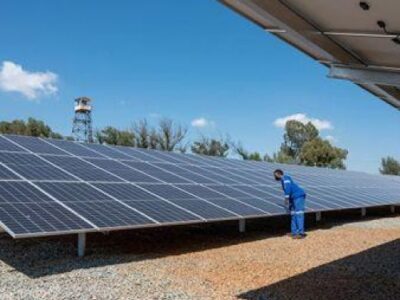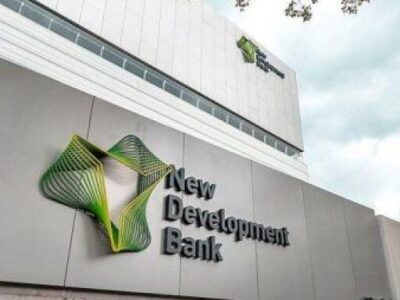
(IDH) – The implementation of the EU Deforestation Regulation (EUDR) has the potential to significantly impact cocoa production in West Africa. With the European Union demanding deforestation-free and traceable cocoa, the stakes for the region’s cocoa supply chains have never been higher. Implementing this regulation is not merely about compliance—it is about collectively finding solutions for deforestation-free cocoa and utilising this pathway for fair remuneration of cocoa farmers. The European Commission’s recent proposal for a 12-month phase-in period offers a critical window of opportunity for stakeholders to step up their efforts, but the urgency to act remains.
As we navigate the possibilities of this transition, one pressing question stands out: how do we ensure that smallholder farmers—the backbone of the cocoa industry—are not left behind? How do we create inclusive value chains while achieving the stringent standards required by the EUDR?
Protecting farmers, protecting forests: a balanced approach to impact
At the heart of the cocoa supply chain in Côte d’Ivoire, Ghana and Cameroon are around 2.4 million farmers. They produce most of the world’s cocoa, but they also stand to bear higher risks associated with compliance requirements, in particular when they are located near protected areas. Without adequate support, these farmers risk being excluded from high-value markets. This threatens their livelihoods and actually increases the risk of deforestation as farmers seek alternative income sources.
IDH’s position on the EUDR is clear: while the regulation represents an important step in reducing deforestation, its implementation must not put smallholder farmers at risk of exclusion. Our work in Côte d’Ivoire, Ghana, and Cameroon has demonstrated that inclusive solutions are possible—but they require joint action from both the public and private sectors. Matthew Spencer, IDH Global Director – Landscapes, underscores this by stating, “The success of these efforts lies in pre-competitive collaboration, where companies share some of the costs of collecting farm geolocation data between themselves, and support the creation of reliable and inclusive national farmer databases.”
Building robust traceability systems
Achieving traceability is not just an EUDR requirement—it is an anchor of a cocoa sector that can sustain itself while contributing to forest conservation, and if implemented well could be a vehicle towards better livelihoods and ultimately a living income for cocoa farmers.

“Building public-private solutions now that not only allow for compliance, but support deforestation-free supply chains and the payment of a living income is both critical and the opportunity at hand” emphasizes Daan Wensing, IDH CEO.
Countries like Côte d’Ivoire and Ghana have made significant strides in developing national traceability systems, such as the Côte d’Ivoire Coffee-Cocoa Board system and the Ghana Cocoa Traceability System (GCTS) of the Ghanaian Cocoa Board (COCOBOD). These
systems map the geolocation of the farms, record farmer data, and trace cocoa through the supply chain from the farm to the point of shipment. Over 2.2 million farms are now mapped, and around 1.5 million farmers have unique ID cards in Côte d’Ivoire and Ghana combined.
“We do not want to lose momentum towards our preparedness and readiness on EUDR compliance despite the recent announcement of the proposal for postponement of the enforcement date” says Vincent Okyere Akomea, Managing Director of Cocoa Marketing company and Chairman of the GCTS Steering committee (Ghana).
However, to date, a large share of indirectly sourced cocoa remains untraced, and a full connection between company-operated systems and national databases must be ensured. Through projects with key partners in Ghana, Côte d’Ivoire, and Cameroon, we are developing unique, data-driven solutions to address this challenge and bridge the gap between fragmented systems. In Ghana, for example, IDH partners with the COCOBOD and a handful of cocoa companies to field-test the national Ghana Cocoa Traceability System (GCTS), enhancing transparency and identifying how partners can concretely collaborate to deliver robust and credible traceability data. Ultimately, this will reduce duplication of efforts and ensure that more smallholder farmers are accounted for.
Similarly, in Côte d’Ivoire, IDH is working with the CCC to enhance the accessibility for private companies to the national traceability platform, ensuring a streamlined and trustworthy flow of information from plot to port. In Cameroon, where traceability efforts are still at an early stage, IDH is raising awareness on EUDR and supporting the compliance of cooperatives in the centre region, promoting the use of a common farmer database initiated by the Cocoa and Coffee Interprofessional Board (CICC) thereby demonstrating that a bottom-up approach can provide valuable insights to inform the development of a national traceability system.
Integrating real-time forest monitoring systems
Forest monitoring emerged as a critical tool to ensure compliance with EUDR, providing mechanisms to verify that cocoa is sourced from deforestation-free land.

Satellite-based systems enable stakeholders to track land-use changes in real time, allowing national authorities to respond swiftly to illegal deforestation and supporting private companies’ due diligence efforts. Furthermore, the EU will classify countries as low-, standard-, or high-risk based on deforestation levels, with robust monitoring systems helping to improve their risk classification.
Countries like Côte d’Ivoire and Ghana are already taking proactive steps to detect and address deforestation risks through satellite monitoring, reinforcing their capacity to meet EUDR standards. Although these systems are not yet fully operational, IDH is supporting stakeholders in making monitoring systems interoperable and scalable. This includes building capacities of national forest surveillance agencies, assisting in testing deforestation alert procedures, and integrating private-sector data into national frameworks.
IDH’s landscape-level work in Cameroon demonstrates that EUDR implementation can go beyond regulatory compliance to deliver a broader impact. In the Grand Mbam region, IDH’s pilot project combines community-based solutions with satellite monitoring to assist farmers in complying with EUDR requirements without overwhelming them with the financial or logistical burden of compliance. This pilot is designed for forest monitoring and empowering local communities to actively engage in forest conservation efforts.
Seizing the moment
The EUDR presents both a formidable challenge and an unprecedented opportunity to transform the cocoa sector, not only by achieving compliance with deforestation-free standards, but also by preparing for the EU Corporate Sustainability Due Diligence Directive (CSDDD) and addressing farmers living income gap.
“The additional 12 months proposed by the European Commission should not be seen as a time to ease off but as a chance to scale what’s working, bring more cocoa farmers into sustainable supply chains, and lay the foundation for future progress on CSDDD and living income. Collaboration is the only way forward,” says Tessa Meulensteen, IDH Global Director – Agri-Commodities.
While the extra 12-months may relieve immediate pressures, it must not slow down efforts, nor allow for re-opening the discussion to modify the core of the regulation. Instead, this extension offers a crucial window to accelerate investments in traceability systems, farmer mapping and registration, and strengthening data-sharing mechanisms. By scaling existing solutions and forging stronger partnerships, we can ensure that farmers are fully integrated into compliant, high-value cocoa supply chains. This allows us to build a foundation that can be further utilized towards the implementation of the CSDDD and most importantly towards farmers earning a living income. The path to success lies in pre-competitive collaboration, innovation, and inclusivity. Now is the time to act—seizing this moment has never been more critical to transforming the cocoa sector.
About IDH
IDH seeks to transform markets through collaborative innovation, convening and investment in inclusive and sustainable solutions that enable businesses to create value for people and planet. To achieve this, IDH brings together coalitions of committed stakeholders from across global value chains towards joint visions and program agendas for sustainable trade. IDH’s international presence extends to multiple regions and landscapes, facilitated by a network of around 400 staff including experts who are embedded in key agricultural, manufacturing, apparel and commodity value chains. In 15 years of operation, IDH has mobilized private sector investment and support to test and innovate new business models designed to create better jobs, better incomes, a better environment, and gender equity for all. Learn about our unique method of convening, co-creating and co-financing. LinkedIn, Instagram, Youtube












Comments